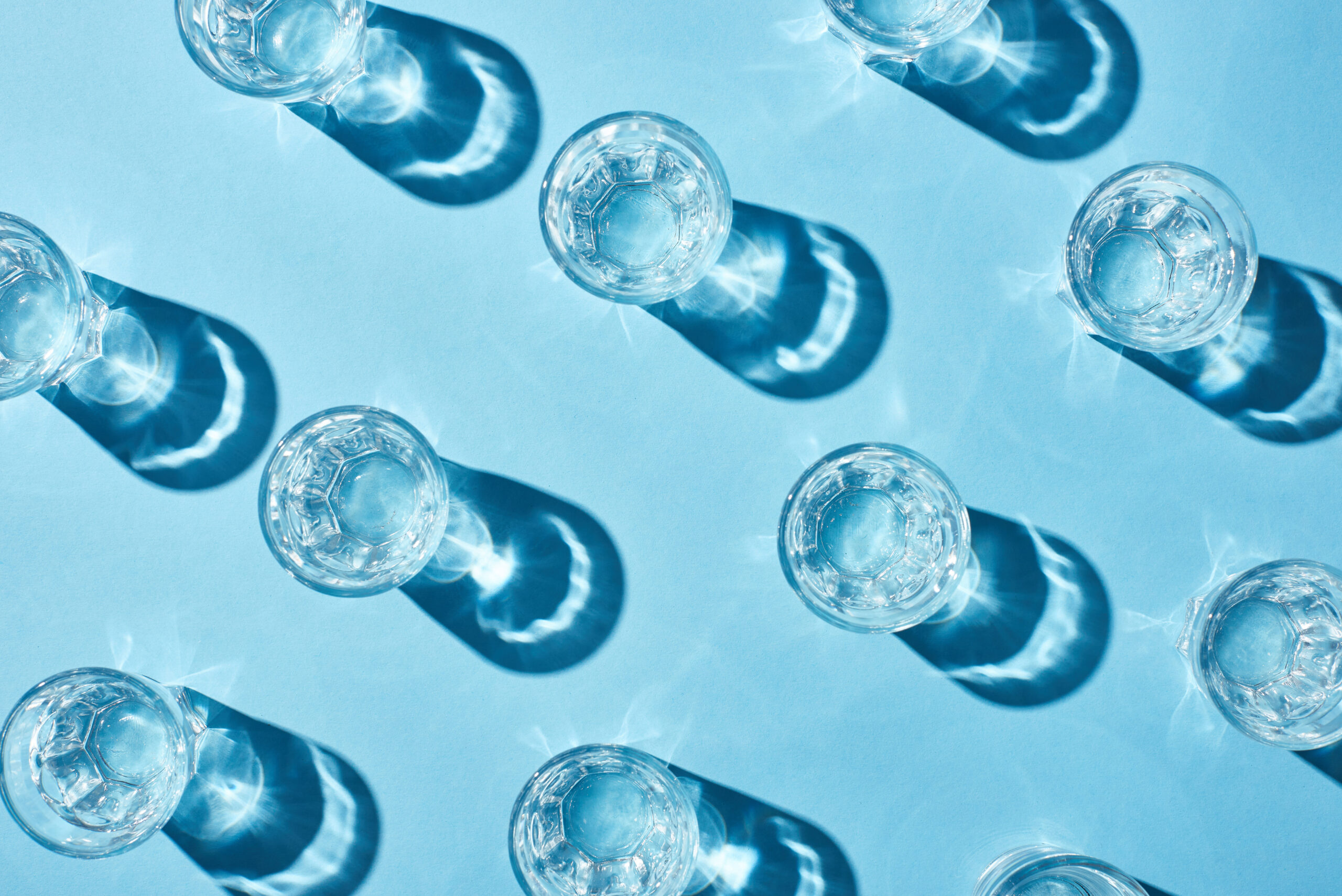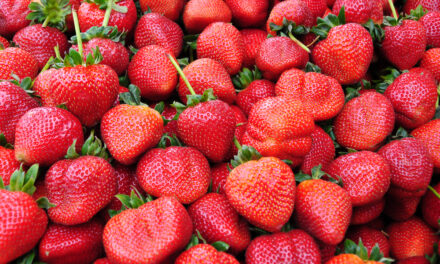7 Ways to Drink More Water and Why

We all know that drinking water is important to our overall health and appearance, but sometimes it’s hard to meet our hydration goals. It’s easy to get busy and forget to regularly drink water, or become “bored” with drinking plain water.
If you are periodically fasting, it becomes even more critical to stay hydrated.
During a fast, you may require more water to help with feelings of hunger and to compensate for the water you are not receiving from food. Most people get approximately 22% of their water intake from food. [1]
Why Is Drinking Water So Important?
As you may know, the human body is composed of approximately 60% water, though this percentage may be different based on age, gender, lean muscle mass, and body fat. This water is distributed throughout your organs and tissues, blood, muscles, plasma, and interstitial fluids, and is vital to your body’s state of homeostasis. [1]
Benefits of water
Staying well-hydrated can have benefits beyond overcoming the usual thirst response – it protects against a number of acute and chronic conditions.
Adequate hydration is important in temperature regulation within the body, offsetting elevated body temperature caused by exercise or warmer climates.
Research also supports drinking water as a preventative strategy against developing kidney stones and may reduce recurrence.[2] Your kidneys’ filtration abilities are also able to run more efficiently when well hydrated, reducing the amount of energy and stress on the kidneys to clear out waste.
Your digestion can also benefit from adequate hydration. Water has the ability to help prevent and treat constipation and allow for normal bowel function.
Proper hydration may have a positive impact on some conditions including high blood sugar, hypertension, stroke, and heart disease. For individuals who are looking to lose weight, studies have associated water intake before meals with increased reductions in body fat and total weight when following a low diet. [2]
The Effects of Dehydration
Dehydration negatively impacts the functioning of the body’s systems, with severe dehydration possibly causing complications leading to death. [3]
When you are dehydrated, your blood volume decreases. This leads to a condition called orthostatic hypotension, where your blood pressure goes too low. This can lead to you passing out and increases your risk for falls and injury. [4]
Inadequate water intake can lead to headaches and can be a trigger for migraines (or increase the length of existing migraines). For individuals who are physically active, including athletes, dehydration can reduce endurance, increase perceived effort, decrease motivation, increase fatigue, and affect temperature regulation. [5]
Cognitive ability can be impaired with even mild dehydration – studies find that dehydration can decrease concentration, short-term memory, visual perception, and alertness. In one study measuring dehydration and cognitive function, researchers found that while cognitive performance was not consistently impacted, subjective feelings of fatigue, confusion, and anger were all reported. [1,2]
The Institute of Medicine’s Dietary Reference Intakes (DRI) recommends that men get approximately 3.3 liters of water, and women get 2.6 liters of water daily through combined water and food intake. Individual water needs may differ due to factors including physical activity, climate, age, and health status.
Ways to Meet Your Hydration Goals
Staying hydrated does not need to be difficult! Try these tips to increase your water intake:
Invest in a Reusable Water Bottle
Having a reusable water bottle makes it easy to carry your water with you no matter where you go. Smart water bottles on the market have additional features to help you drink more water, including app integration to track your water intake or reminders for when you haven’t had a drink in a while.
Make Your Own Infused Waters
Creating infused waters is a healthy way to add flavor while sticking to your health goals. You can make infused water in a pitcher, mason jar, or fruit infuser water bottle with your favorite cut fruit and/or herbs. Common ingredients for infused water include cucumber slices, cubed fruit, lemon or lime juice, ginger, herbs (e.g. rosemary, mint, or basil), or even spices like cinnamon.
Add Bubbles to Your Water
Drinking sparkling water can give you more variety in your water drinking routine. Sparkling water is a healthier bubbly alternative to soda and allows you to avoid the extra calories, sugar, and acids that traditional sodas provide. If you’re a fan of sour foods, you’re in luck – the carbonation in sparkling water activates the sour-sensing taste receptors in your tastebuds, giving sparkling water its unique flavor. [6]
Keep a Glass of Water by Your Bedside
Before you go to bed, pour yourself a glass of water to have on your nightstand. If you wake up and get thirsty during the night, you can avoid the trip to the kitchen in the dark to quench your thirst. Alternatively, you can start your morning off with your first glass of the day.
Add Technology to Your Water Drinking
If you use your phone often throughout the day, then an app to track your water intake can be helpful. Many of these apps are simple, giving you a notification when it’s time to drink water and tracking your water intake for the day. Some apps will also include motivational quotes, achievement badges, and game-like features to improve your motivation.
Have an Accountability Partner
Some people have accountability partners for activities like exercise or working on a project, so why not have one for drinking water? This tip may be especially helpful for people who don’t use apps or keep forgetting their water bottle. Talk with someone in your life about the goal that you have to drink more water, and they can support you by checking in with your progress or even joining in!
Water While You Work
The workplace can also be a great place to stay hydrated. Keep a cup of water or water bottle at your desk while you’re working, and try alternating your coffee or tea intake with water to keep you hydrated and mentally alert.
Drinking enough water is important for normal bodily function, but becomes even more important when you’re on a fasting diet. Creativity with your water intake can be the key to staying healthy and safe during your fast.
Read More:
Author:

Markita Lewis, MS, RD
Markita has an interest in the biological, social, and cultural aspects of eating. She enjoys writing about nutrition and wellness, food justice and policy, cultural foodways, and the psychology of nutrition. You can find her at: www.wellnessandchill.com





